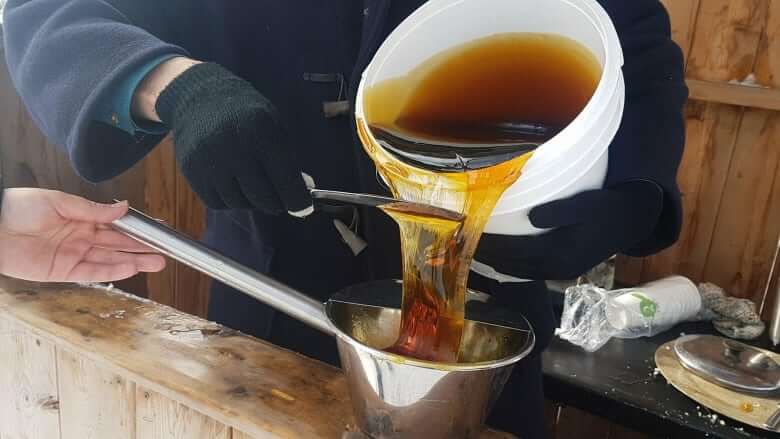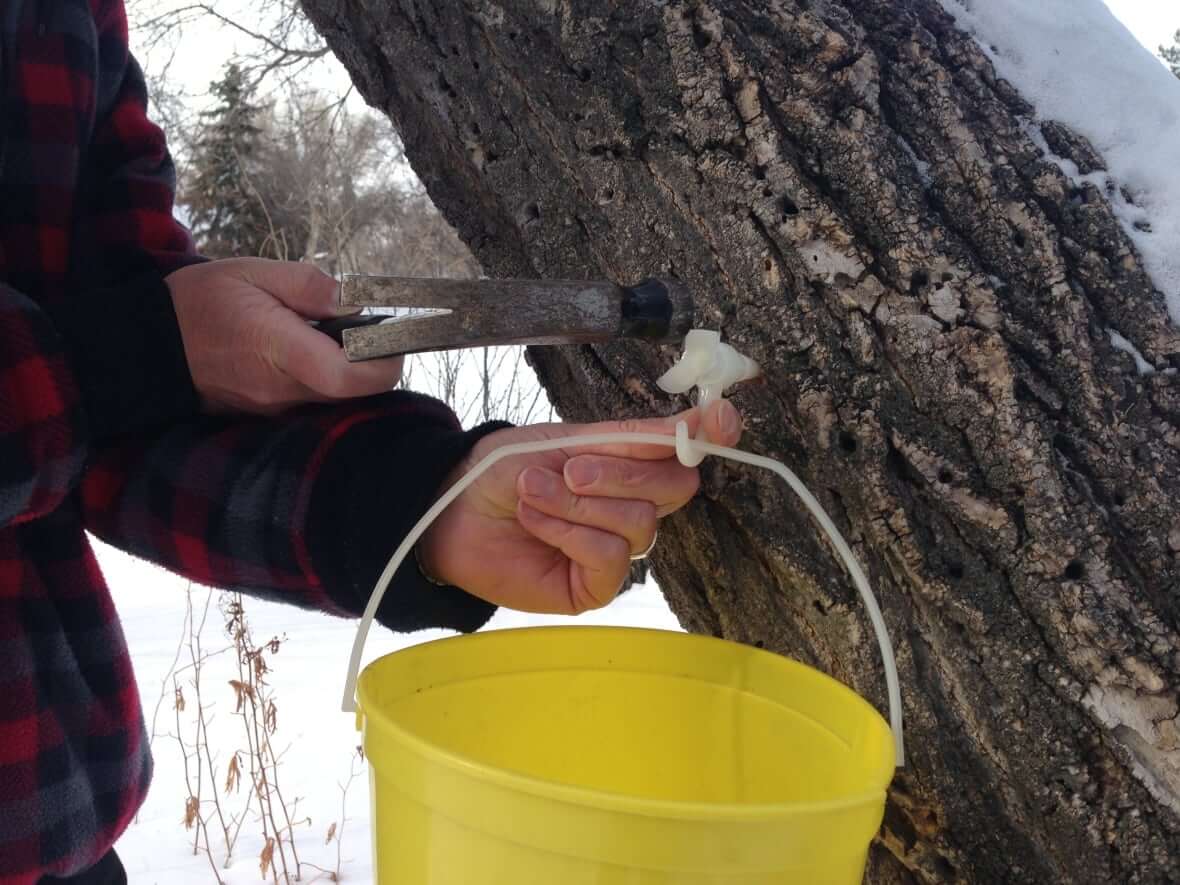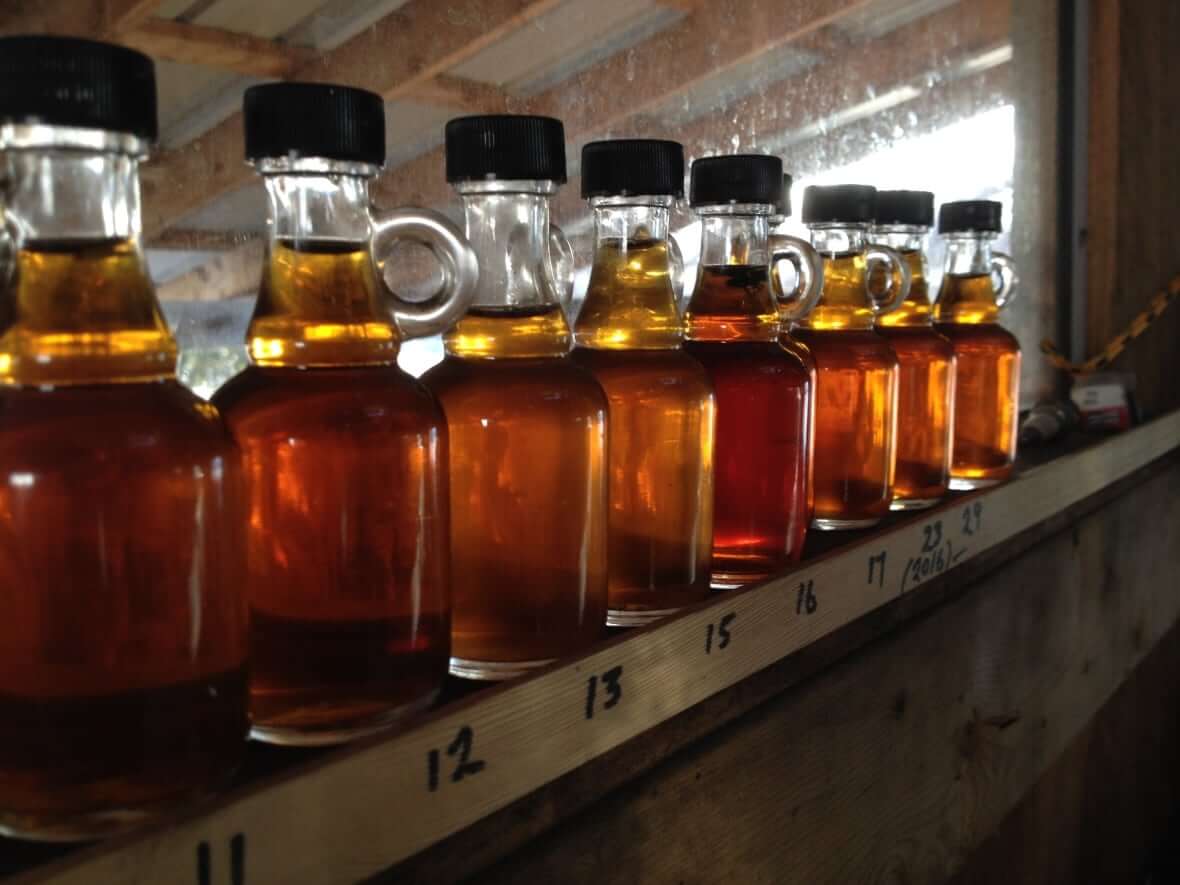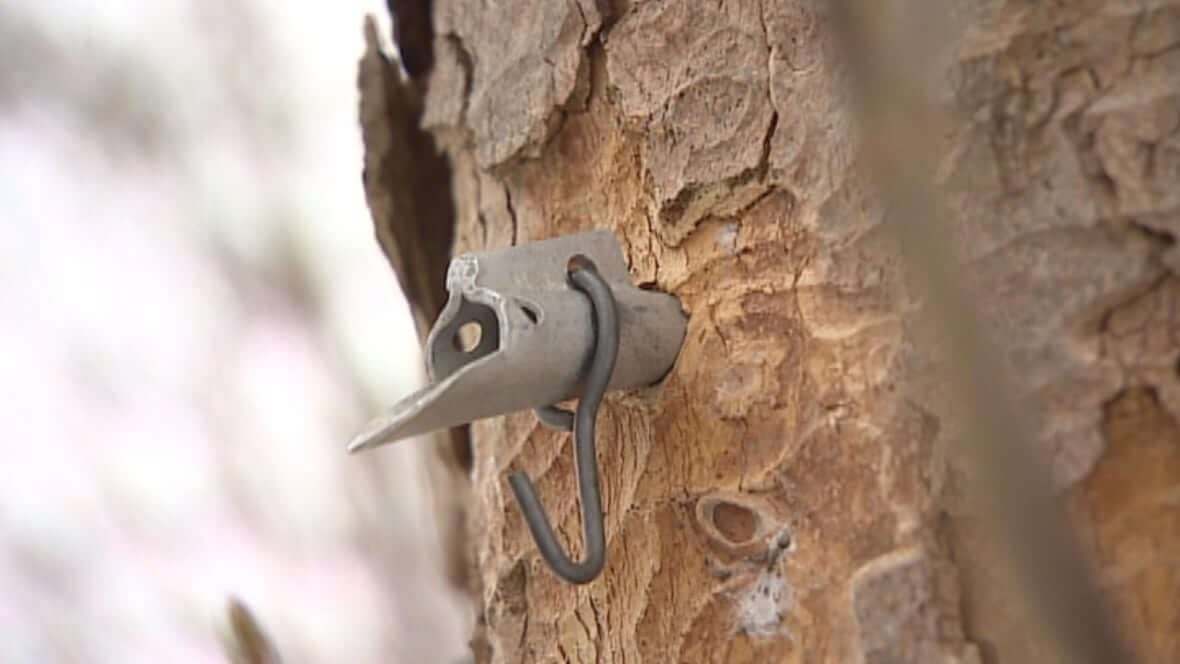Why Canada is unlocking its vault of maple syrup

Canada’s maple syrup industry has become an international focus in recent days, with headlines shouting that the country has been forced to tap into its strategic reserve to make up for shortages.
Quebec produces about 73 per cent of the all maple syrup in the world. And the Quebec Maple Syrup Producers (QMSP), an organization that governs the province’s maple syrup producers, has said it will release about 22.7 million kilograms of maple syrup from its strategic reserve into the market by February.
For some, the headlines may have been an eye-opener that Canada even has a stockpile of maple syrup. CBC Explains the purpose of this reserve, why it had to be tapped into, and explores whether there was ever a shortage of maple syrup.
What is the strategic reserve?
Quebec’s maple syrup industry is subject to a supply-management system, meaning it employs a quota system run by the QMSP which dictates market volume. The QMSP also controls the Global Strategic Maple Syrup Reserve, which can hold more than 45 million kilograms of maple syrup.
The reserve was created in 2000 to keep syrup in stock and ensure a constant supply for national and international markets, regardless of the size of the harvest, Hélène Normandin, a spokesperson for QMSP told CBC’s As It Happens.
One site, the Laurierville Plant and Warehouse, in the Centre-du-Québec region, covers an area of 24,805 square metres – the equivalent of five football fields. That site alone can store 25 million kilograms of maple syrup, or 94,000 barrels.
When properly stored in barrels, maple syrup can last for many years, said Michael Farrell, the former director of Cornell University’s Uihlein Forest, a maple syrup research and extension field station in Lake Placid, N.Y.
In years when the yield is good, and more syrup is produced than needed, the extra can be sold to the QMSP and stored “so that when there’s bad years, you have enough to keep people stocked up with syrup on their pancakes,” Farrell said.
“Without this in reserve [this year], there would be much less syrup up on store shelves, and the price would be much higher.”
Why did they have to tap into the reserve this year?
In 2021, there was about 60 million kilograms of maple syrup produced, an average amount when compared to past years but down 18 million kilograms compared to 2020.

“It was an average season, not bad, but not as big as the two last seasons — 2019 and 2020 were just amazing, wonderful years of production,” Normandin said.
However, worldwide demand has increased by more than 20 per cent — a spike industry experts believe was partly fuelled by more people cooking at home during the pandemic — and that has strained the supply.
How did the weather affect the yield?
Not every year is a perfect year for every agricultural harvest. And this was one of those years which was not ideal in terms of maple syrup production, said Abby van den Berg, a research associate professor at the University of Vermont’s Proctor Maple Research Center in Underhill, Vt.
Many places didn’t have good weather for sap flow until later in the production season, she said.
In order for sap to flow, there has to be freezing temperatures, followed by above-freezing temperatures, she said.
“There just weren’t that many sap flow days,” Van den Berg said.
Was there really a ‘shortage’ of syrup.
‘Canada tapping reserve maple syrup supply amid shortage’
‘Facing shortages, Canada taps its strategic reserve of maple syrup’
It was headlines like those that made Van den Berg bristle, she said.
“We had a year where the harvest was not super. It actually wasn’t terrible. It wasn’t as good as it had been in past years, and the reserve was there to perform its function,” she said. “And there was no disruption in supply. There is no shortage.”
“All of the headlines said ‘maple syrup shortage,'” she said. “And literally, there is no shortage because of the reserve.”

Philippe Charest-Beaudry, the owner of Ste-Anne-de-la-Rochelle, Que.-based Brien Maple Sweets, which packages and sells bottles of maple syrup, said his company has been able to fill every contract so far this year.
“I’ve not heard in the industry other players that were not able to meet contracts,” he said.
Has the reserve ever run into trouble with its stock?
Between 2011 and and 2012 around 3,000 tonnes were stolen from a storage facility in Quebec. But it was a few years earlier than that when the strategic reserve actually did run dry.
“People probably don’t remember, but in 2008, after two or three years in a row of bad production, just bad weather, [they] ran out of syrup in the reserve,” said Mike Farrell
“There was nothing there and there wasn’t enough syrup to go around. Prices spiked. We lost a lot of markets for pure maple syrup,”he said.

Ray Bonenberg, former president of the International Maple Syrup Institute and a maple syrup producer near Pembroke, Ont., said 2008 was an “awful year in production.”
“It was abnormally cold until April 1st and then it got really warm, and I know my season was like eight days so it was disastrous,” he said. “The reserve was right down to the bottom, and has been building it up.”
What does this mean for next year?
Farrell said the 22.7 million kilograms of maple syrup represents a “significant amount to take out the reserve this year.” But what does that mean for the near future of the reserve?
There are currently around 50 million maple syrup taps in Quebec. In July, the QMSP approved the issuance of seven million new ones to meet the demand.
“From our perspective, we believe it should solve the issue on the short term basis,” said Charest-Beaudry, “I don’t see a season next year where there’s no more maple syrup in the grocery store.”








Redes Sociais - Comentários